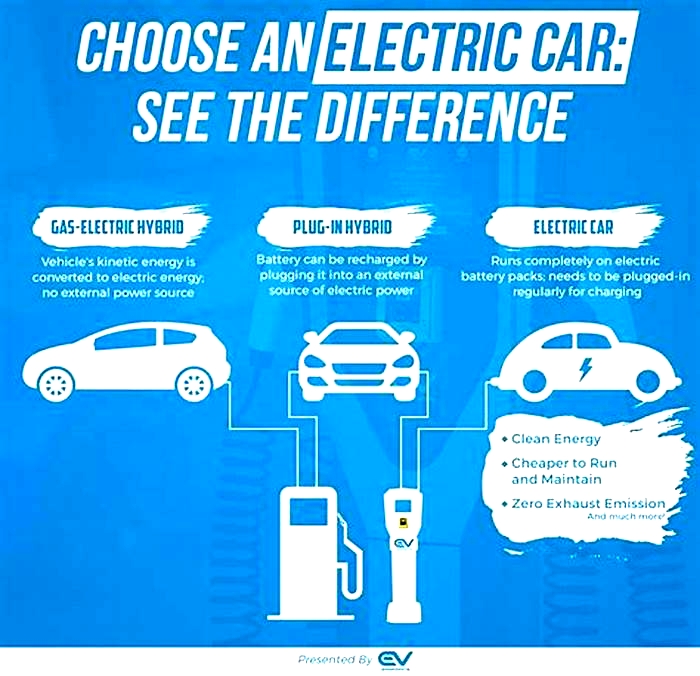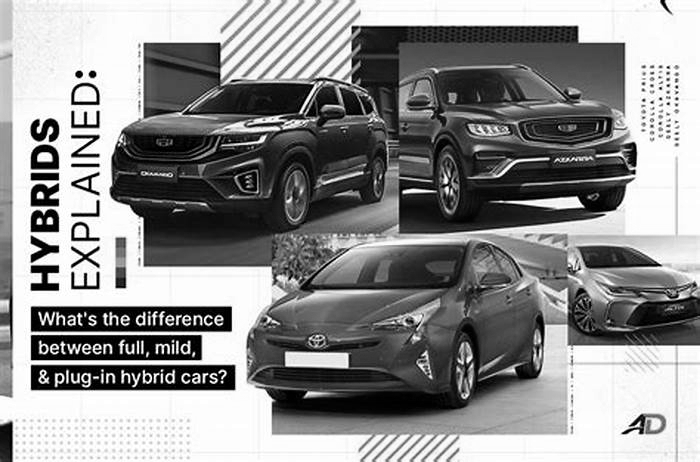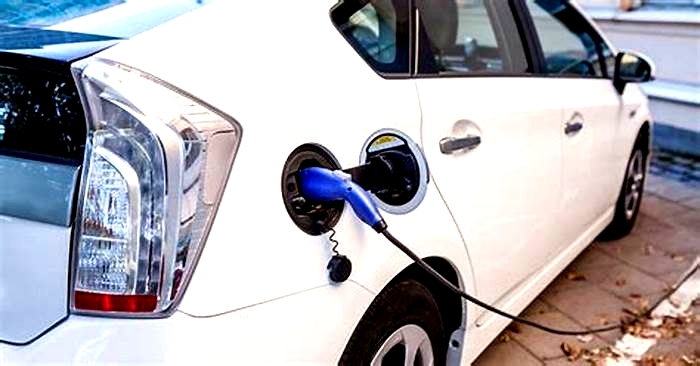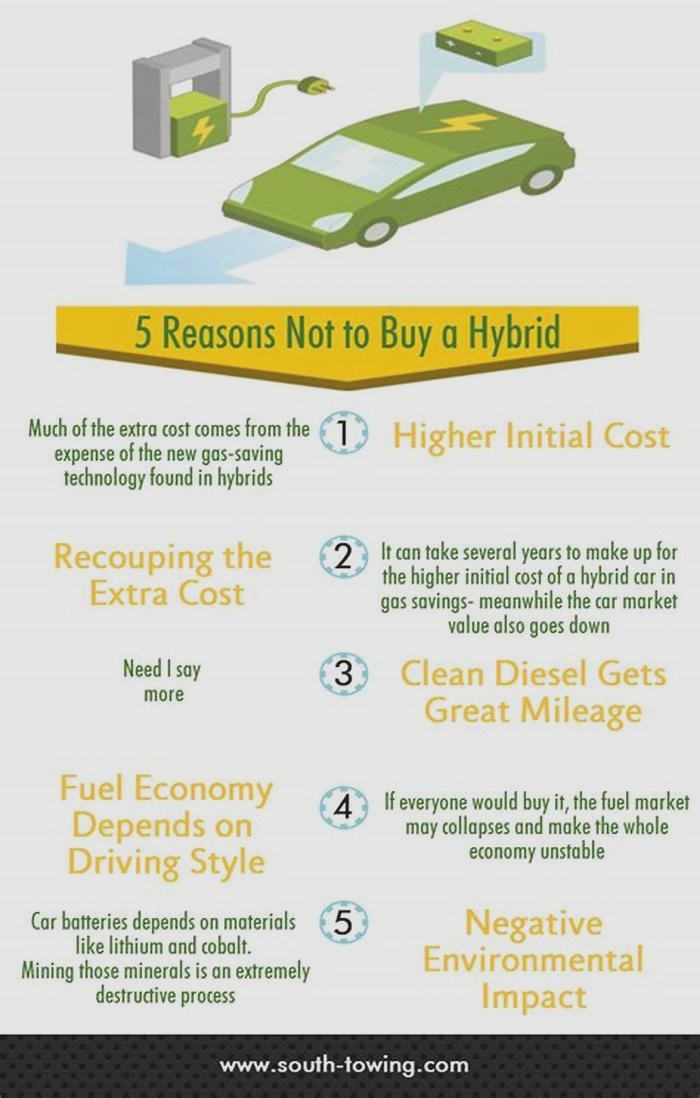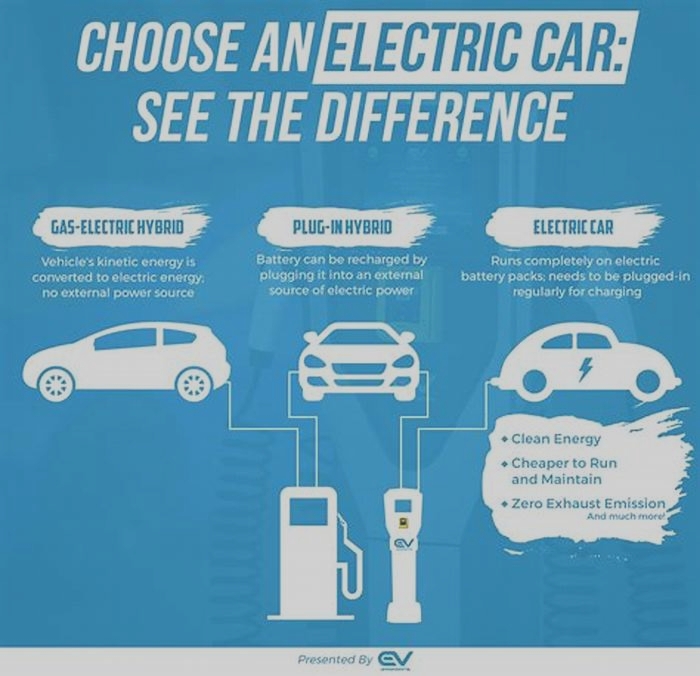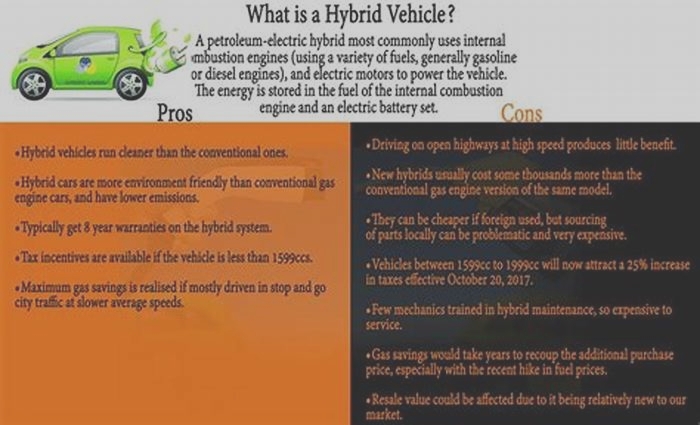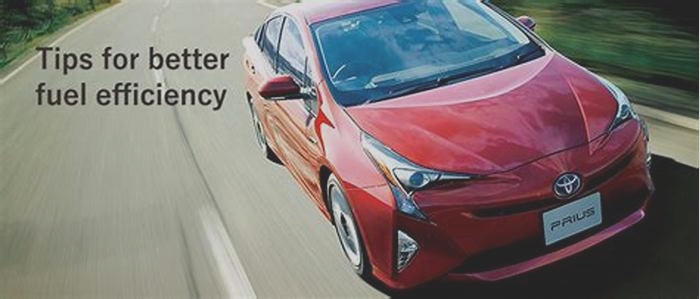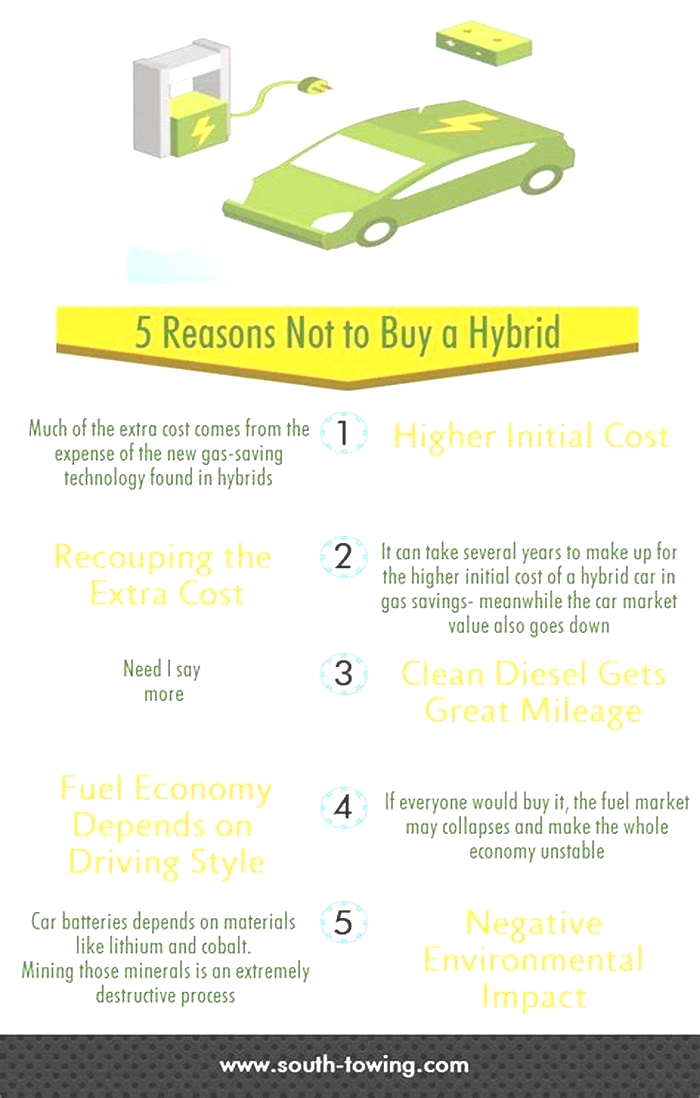What is better an EV or a hybrid
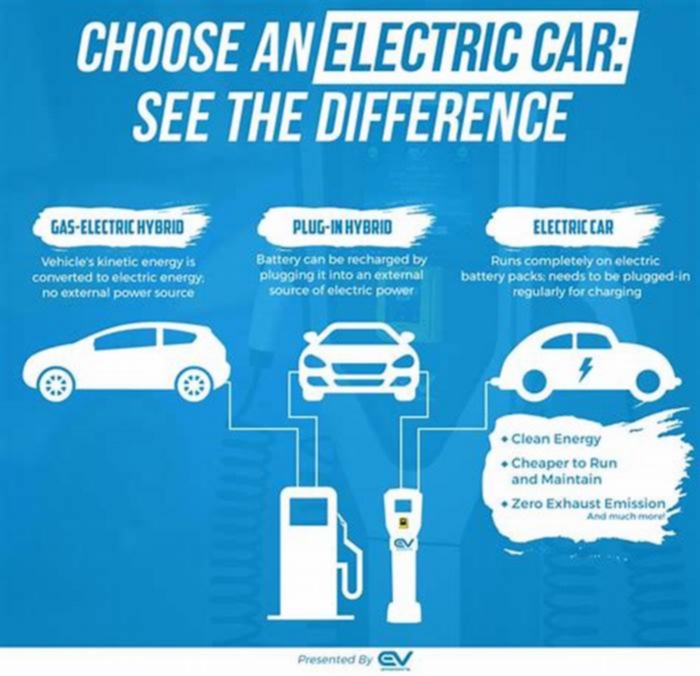
Should you buy an EV or a hybrid?
Deciding whether you should buy an EV or a hybrid is something every driver should be thinking about these days. Not only are gas prices through the roof, but the days of the gasoline-powered car are coming to an end, even in countries that arent forcing automakers to make the switch like the U.S., something that we mention in our guide to the 7 things you need to know before you buy an electric car.
(You can also read about my thoughts on renting an electric car for my vacation).
But if youre the forward-thinking type, you may want to get ahead of the curve and ditch the gasoline-powered car, and go for one of the best electric cars. However, there are more alternative fuel vehicles than ever before, so switching to a pure EV isnt necessarily an easy task. After all, each type of vehicle is different, with their respective advantages and disadvantages.
Hybrids and EVs are, generally speaking, more expensive options than traditional cars. But the benefit is that each option can help you save some money on your overall running costs, particularly when prices are so high you need to study up on how to find cheap gas.
Deciding whether you should buy an EV or hybrid is easier if you know what they all are and whether they fit your circumstances or not. Heres what you need to know.
Electric cars vs. hybrids: Main differences
An electric car is exactly what its name suggests: the only thing powering the car is a large battery pack. How big that battery is depends on the car, but the principles are always the same. You plug the car in to recharge the battery, as you would a smartphone, and the stored energy powers one or more electric motors that turn the wheels and make the car move.
Theres no other fuel involved, and the only consumable you need to worry about is wiper fluid for the windshield.
There are currently three different kinds of hybrid vehicles on the road: standard hybrids, also known as full hybrids, mild hybrids and plug-in hybrids. Each one blends electrical and internal combustion drivetrains in their own way, and for a number of reasons.
Full- and mild hybrids are powered by an internal combustion engine, and use gasoline or diesel to power everything. It also comes with a battery, electrical motor and regenerative braking system that is designed to ease the burden on the engine. These cars use electrical power to offer an acceleration boost, switch off the engine when youre slowing down or stationary, while the regenerative braking slows you down more smoothly. The main difference between the two is that full hybrids can also travel on electrical power for around a mile. Mild hybrid systems are not powerful enough to offer this.
A plug-in hybrid typically keeps the two drivetrains separate, letting you drive using electrical energy or gasoline. Plug-in hybrids have a much longer electrical range than a full hybrid, though not as much as the vast majority of electric cars, and will only recharge when plugged in. However, the engine can kick in when youre out of battery power.
The main benefit to a plug-in hybrid is the fact they can drive on electrical power for a significant distance the longest being the Polestar 1s 93 miles. That reduces your gas consumption for short trips, while the engine and gas tank let you drive much further without having to stop and recharge.
Reasons to get a hybrid
No range anxiety
The main benefit to driving a full or mild hybrid is that refuelling is as easy as filling up your gas tank. Gas stations are everywhere, after all, and the process is faster than having to plug in and recharge.
While you havent given up on gasoline, the hybrid system is one way to improve your gas mileage. The electrical system is able to assist the engine, the engine doesnt have to work as hard - which reduces the amount of gasoline you use in the process. Full hybrids can even drive around for short distances using electrical power on its own, saving your fuel for when its really needed.
All of this means that you dont need to worry about the range anxiety you may have heard so much about. You will need to refuel before you empty your tank, but the widespread availability of gas stations means you wont need to find electric car chargers near you. Nor will you have to learn how long it takes to charge an electric car.
You dont always need a separate charger
Full and mild hybrids dont need to be plugged in, and instead recharge the battery using energy from the engine and regenerative braking system. Theres a reason some automakers use the term self-charging hybrid. As unscrupulous as it may seem to use that phrase, it isnt inaccurate.
Plug-in hybrids do need plugging in, but once the battery is dead, the car will automatically fall back on the engine to keep itself running. While the battery wont be much use until you can plug back in, the engine is quite happy to keep going as if its using an ordinary hybrid power train.
However, plug-in hybrids have that unique configuration where they can independently function as both an EV and a traditional car. Driving on electrical power alone can save you a lot more money on gas than other hybrids. Still, plug-in hybrids have a reputation for offering worse gas mileage, on account of the fact they have to lug around a heavy battery. And the bigger the battery, and more range it can offer, the worse that will be.
Theyre less expensive than EVs
The other benefit is cost. EVs can still be quite pricey, even at the cheaper end of the spectrum. While hybrids are more expensive than their non-hybrid counterparts, they are closer to non-hybrid models. Mild hybrids are the closest, and therefore cheapest, followed by full hybrids and plug-in hybrids.
Theyre still eligible for federal rebates
A number of plug-in hybrids are also eligible for the US federal EV credit. How much you get back depends on how much range the car has to offer, but the highest range plug-in hybrids are eligible for the full $7,500 credit.
Reasons to get an EV
You dont have to buy gas anymore
The immediate benefit to driving an EV is that youre no longer beholden to the price of gasoline. Prices are at insane levels right now, with AA reporting a national average of over $4.50 a gallon. While energy prices are also pretty high, electricity is still, on average, significantly cheaper than an equivalent amount of gasoline.
Plus, no gasoline means no emissions, which will make you feel slightly better about your impact on the environment.
Lower maintenance costs
EVs also require less regular maintenance. Theres no need to change your oil, for instance, and the more simplistic nature of an electric motor, compared to the multitude of moving parts in an engine, means that there are fewer things that can go wrong. While the cost of EV repairs may end up costing more, according to some research, the fact you need less work can still save you money in the long term.
Its worth mentioning that around 30 U.S. states charge drivers for the privilege of having an electric vehicle. Those annual fees range from $50 (Colorado) to $200 (Georgia, Alabama, and more). Thats going to eat into your savings somewhat.
Theyre faster and quieter
But if its not about money, there are plenty of other reasons to drive an EV over something with a gas engine. Benefits include near-silent running, better on the spot acceleration thanks to instant torque, and roomier interiors. Despite the size of the battery, the relatively small size of EV mechanics mean theres more interior space to enjoy than a similarly sized gasoline car or hybrid.
In some cases EV batteries are built into the structure of the car, and help reinforce the frame against collisions.
Should you buy an EV or a hybrid? The bottom line
The decision of whether to buy an EV or a hybrid is dependent on your circumstances. In all cases you can lower your overall gas consumption, and get a better driving experience in the process. But not every option is the right one.
If you dont have access to a reliable car charger, then a plug-in car is not going to be much good. But if the price of gas is really hitting you in your wallet, then a mild or full hybrid isnt going to change the fact you will need to keep buying gas fairly regularly.
Mild hybrids are usually the cheapest option, but dont have as much gas-saving potential. EVs, which use no gasoline at all, offer the most money saving potential, but are comparatively more expensive to purchase outright. However, your fuel savings will rely on where you recharge, and how much it costs. (We have a few tips on how to find cheap gas.)
Hybrids cost of entry may be lower than an electric car, but you will be paying that back in the long term especially if prices continue to rise. But that would also be true if you did nothing, and in the case of a hybrid you at least have a better chance of reducing your fuel consumption.
Next: Hybrid and electric cars can regain some lost power through regenerative braking. But what is regenerative braking and how does it work? We'll tell you everything you need to know about it. And I took a 500-mile trip in an EV but range anxiety was the least of my problems.
Hybrid vs electric cars: Which should you choose?
If youre after a definition of electric cars, the simple version is that they are vehicles with an electric motor powered by a lithium-ion battery that requires external charging.
A hybrid vehicle, on the other hand, is a car that has both a petrol-powered internal-combustion engine and a battery-powered electric motor that can be used either simultaneously or independently.
A main difference between hybrid and electric cars is that hybrids do not need to be charged via an external source as the vehicle generates its own electricity to store in the battery.
If youre wondering which is better, a hybrid or electric car, its worth weighing up the pros and cons in the hybrid vs electric cars battle.
First, lets look at the basics.
Both hybrids and electric vehicles (EVs) have one important thing in common: theyll both reduce your petrol costs (by 100 per cent in the case of EVs), and theyll both reduce carbon dioxide emissions that cause environmental pollution.
Download the EVGuide Report, 2022
Australia's one-stop snapshot of all things relating to electric cars.
Download for freeBut when it comes to which one beats the other in the hybrid vs electric battle royale, the EV can seem the clear winner for one simple reason: it requires zero petrol.

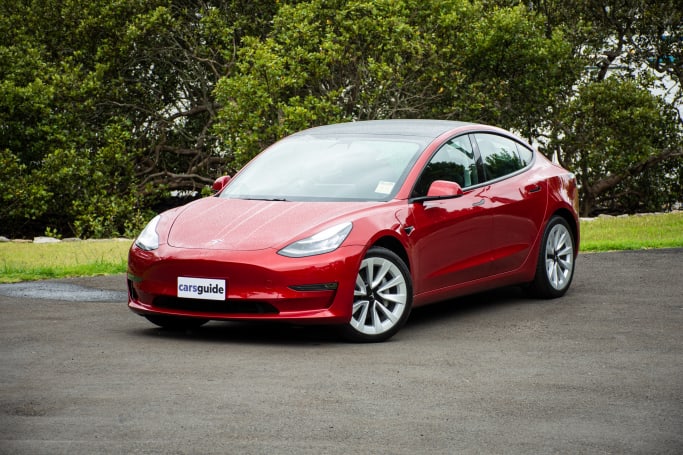 Tesla is the poster company for vehicle electrification.
Tesla is the poster company for vehicle electrification.
And although its a somewhat slow-moving process, its worth highlighting that the world is moving away from fossil-fuel-guzzling combustion engines and heading towards a future where EVs will be the norm.
Although Australia is sadly a long way behind the eight ball when it comes to infrastructure and consumer incentives for EVs, other nations are being more proactive.
UK Prime Minister Boris Johnson has vowed to ban the sale of new combustion-engine vehicles by 2030 with plenty of other European nations following suit - a lead that Australia will eventually have to follow.
What makes EVs, like the popular Tesla Model 3 or the Nissan Leaf, such an attractive option to consumers is that they come with an electric motor powered by a lithium-ion battery, doing away with the need for petrol altogether (and thus removing emissions, and the need for an exhaust pipe of any kind).
Global sales of EVs rose by 43 per cent in 2020 to more than three million, with Tesla and Volkswagen the two best-selling brands. Europe also saw EV sales double, with the region overtaking China as the worlds biggest EV market.
The range an EV can travel on a single charge depends on the size and capacity of the cars battery, which can deliver anything from 6.1kWh of power with a range of about 90km to an electric motor boasting a sizeable 100kWh and a range of over 600km.
Charging times can also vary greatly depending on the type of charging station and the EVs battery, but to give a general idea, a standard EV with a 70kWh battery would take 10 hours to fully charge from empty to full using a 7kW charging point.
One thing that can be depended on, however, is that the cost of maintenance for an EV will be relatively minimal due to the fact the car comes with little in the way of moving parts, meaning drivers will save themselves money in the long run.

 Unlike EVs, hybrid cars dont ever need to be charged using an external source.
Unlike EVs, hybrid cars dont ever need to be charged using an external source.
While this may give the impression that EVs are the victor in the electric vs hybrid fight, the latter still offers some benefits over an EV.
While theres some confusion around what a hybrid is - is it powered by solar? Wind? Happy thoughts? - the answer is quite simple.
Hybrid vehicles have both an electric motor/spowered by a lithium-ion battery and an internal-combustion engine powered by petrol, and the hybrid will either use these two together to deliver extra power, or independently in certain situations - for example, a hybrid will typically switch to the electric motor if youre idling or driving at a low speeds.

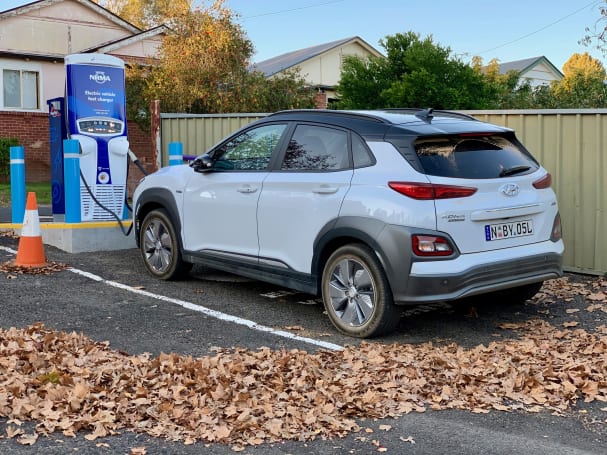 Global sales of EVs rose by 43 per cent in 2020.
Global sales of EVs rose by 43 per cent in 2020.
Having a traditional combustion engine in addition to an electric motor will help ease the fears of those worried that their EV may run out of power or that they wont locate a charging station before the car conks out, making it a good BandAid option for those not ready to fully commit to an EV yet.
In terms of price, hybrid models are usually only slightly more expensive than the petrol-powered versions of a given vehicle, meaning that owning a hybrid isnt cost-prohibitive to the average consumer (while EVs do tend to be more expensive).
Another benefit of hybrid cars is that, unlike EVs, they dont ever need to be charged using an external source.
A hybrids internal-combustion engine generates electricity to be stored in the cars battery, as does a process called regenerative braking where whenever the vehicle slows down or stops, kinetic energy is fed into the lithium-ion battery, effectively charging it up.
Both types of vehicle come with their own set of pros and cons, so your best bet is to figure out whats most important to you in terms of cost and potential savings, the distances youll be travelling and your overall impact to the environment.
Crucially, though, youll be cutting down on pollution regardless of your choice, which can only be a good thing.

